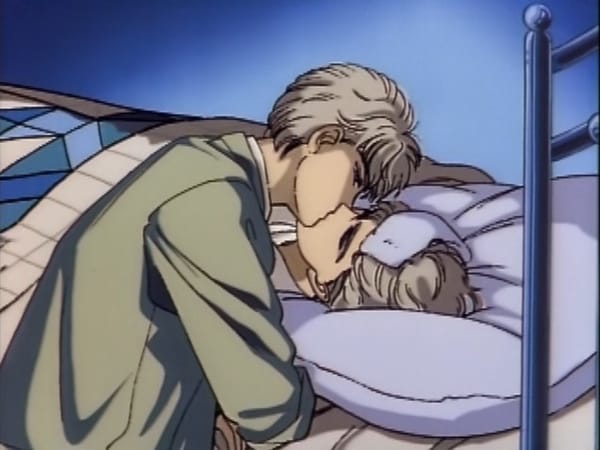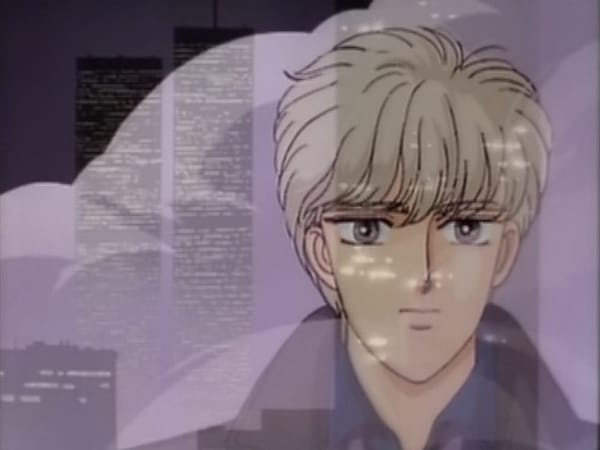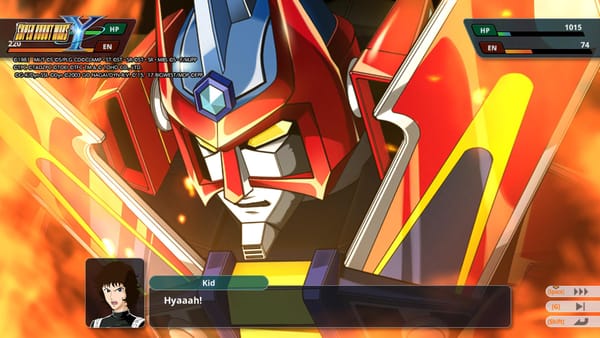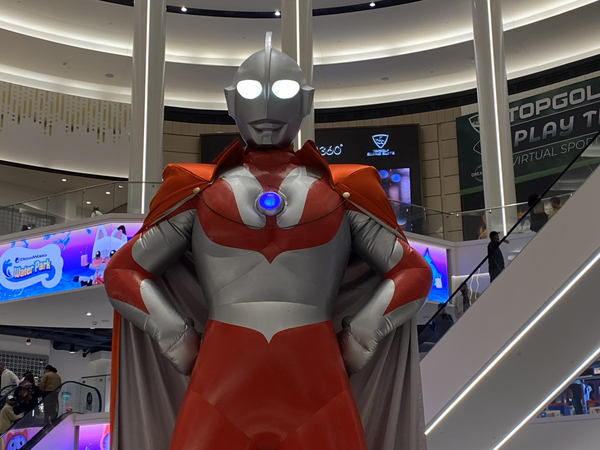Reborn As a Vending Machine gets a surprising amount of mileage out of its novelty value, but isekai is isekai in the end
*You might get a bonus item!*
The good news is that the fantasy genre, long dormant, is quite revived in anime/manga. The bad news is that the genre has effectively been supplanted by a new genre, isekai (parallel world), composed of endless permutations of fantasies about living inside one of two video games.1
Conveniently, the title of the work tends to say exactly what’s inside, so you can easily skip the endless wack-ass masturbatory power fantasies like Am I Really The Strongest?, or My Special Skill Makes Me OP Even At Level 1, or I Got A Cheat Skill In Another World And Became Unrivaled In The Real World Too. (yes these are all titles) It’s also a strategy to go really surprising or specific, like So I’m A Spider, So What?, or I’ve Been Killing Slimes For 300 Years And Maxed Out My Level.
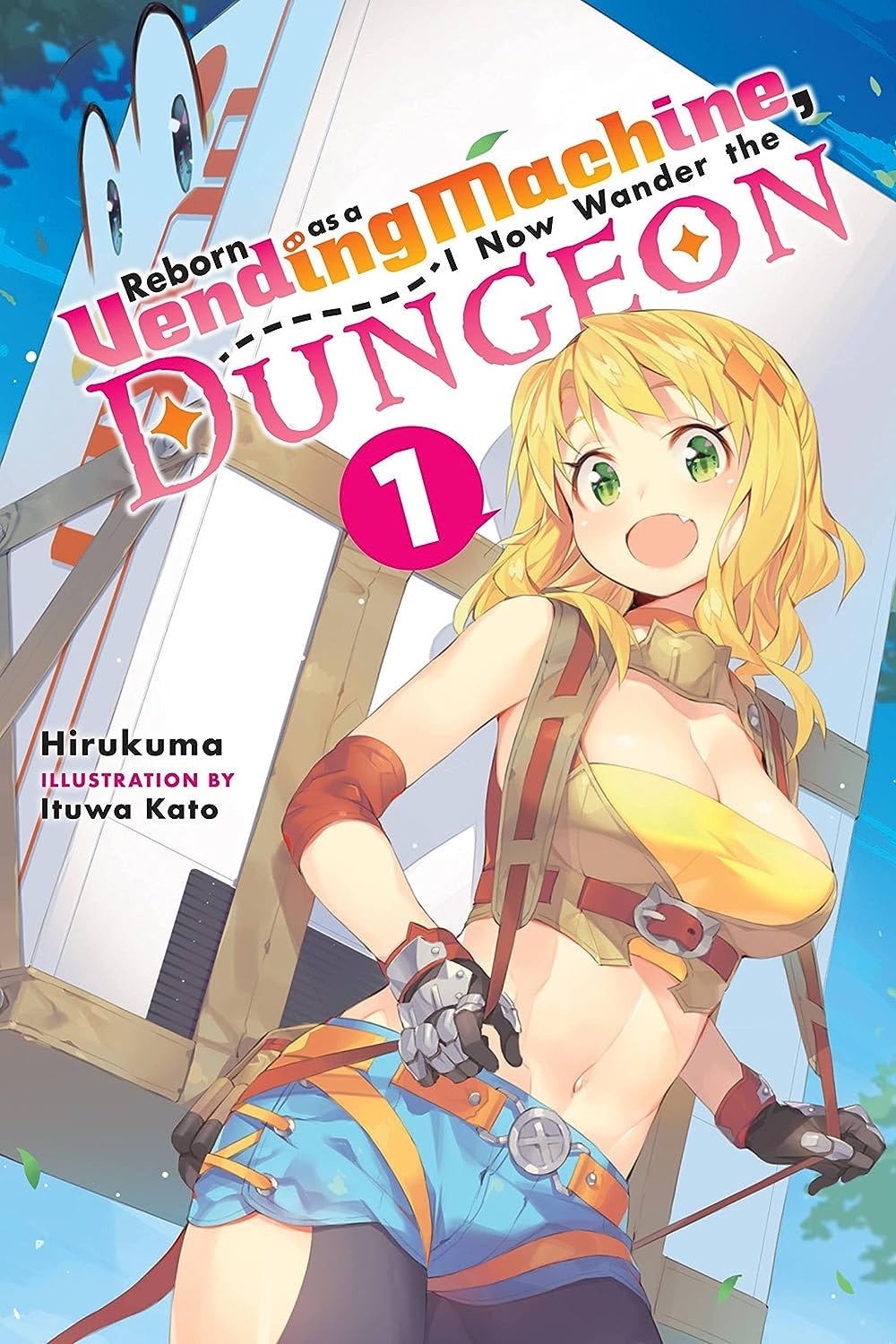
But personally, the isekai title I wanted to see animated since I first heard about the books years ago was Reborn As a Vending Machine, I Now Wander The Dungeon. Now that’s a premise weird enough for me to care.
But the other thing about isekai is they often betray the viewer with a unique title or premise and then proceed directly to the usual isekai boilerplate: “and then I became the strongest, and accumulated many perfect lovers who worship me as a god.”
And I gotta admit that Reborn As A Vending Machine is still proceeding along that road: yes, even an inanimate object hero still has three different girls fawning over him. But the sheer novelty and weirdness of that hero keeps the proceedings fresh every week, especially when the show leans into its unique charms.
“Oh no! That vending machine is in trouble!”
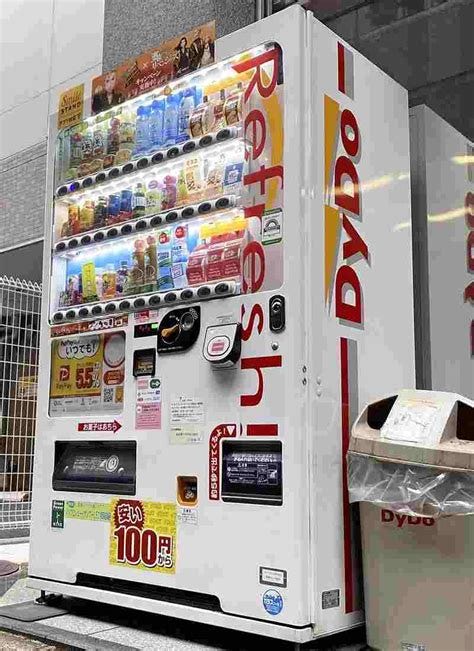
Here’s the setup this time: a guy dies in a motorcycle accident, one he got into himself by loving vending machines so much he tries to save one from toppling off a mountain. As expected, he wakes up in RPG world… with a brand new Dydo vending machine for a body. He is discovered and brought to town— as he must be; he can’t move under his own power— and eventually the newly-christened Boxxo (Hakkon) starts solving problems and saving lives with the power of mundane Japanese commerce.
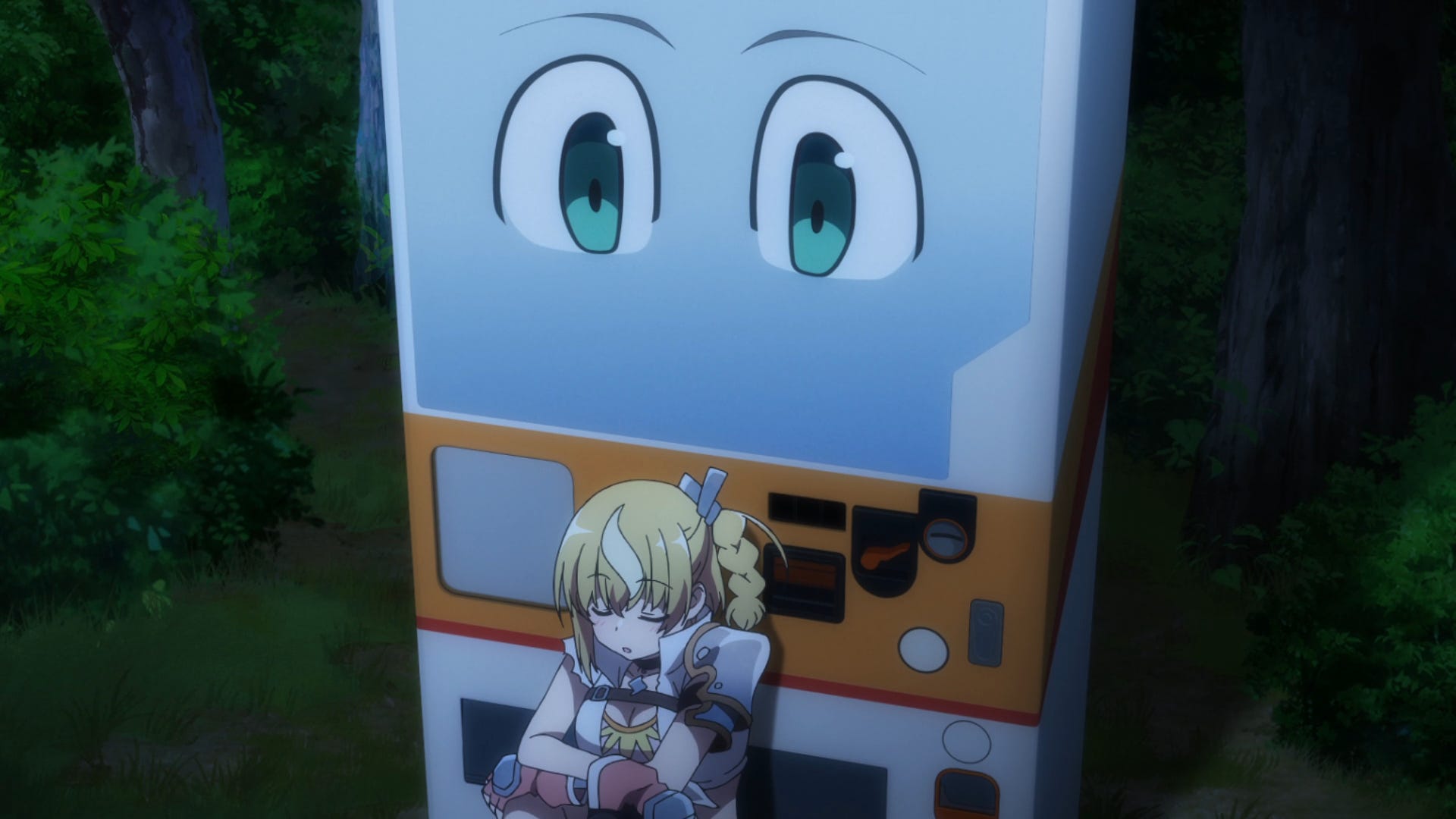
Boxxo’s assistant, representative, and greatest admirer is the person who discovered him, a cute air-headed martial artist by the name of Lammis. Blessed with ridiculous strength, she hauls him on her back, and the two travel the dungeons together. Boxxo can only speak in the phrases that are programmed into him— “hello there!” for yes, “too bad!” for no— but these two build a nice rapport as the kind-hearted Lammis learns to read Boxxo by his… you know, actually, they never tell you how she does it.
Boxxo occupies a weird space between a hero and a mascot character: he’s got the gentle, friendly voice you’d expect to come out of a fancy soda machine (via star voice actor Jun Fukuyama), big googly eyes that only we in the audience can see. With an intense love for and encyclopedic knowledge of Japanese vending machine culture, he’s happy as a clam living inside a mechanical body selling soda to medieval RPG people.
I know just the vending machine for this!
The show is at its best when it holds to this basic premise. Shockingly well-researched and obsessively specific— I was after all able to determine Boxxo’s specific real-world brand— Vending Machine leans on the deep knowledge of a theoretical vending machine otaku by constructing a world only a vending machine could save. Does the show have just one bit? Yes, but the bit never fails.
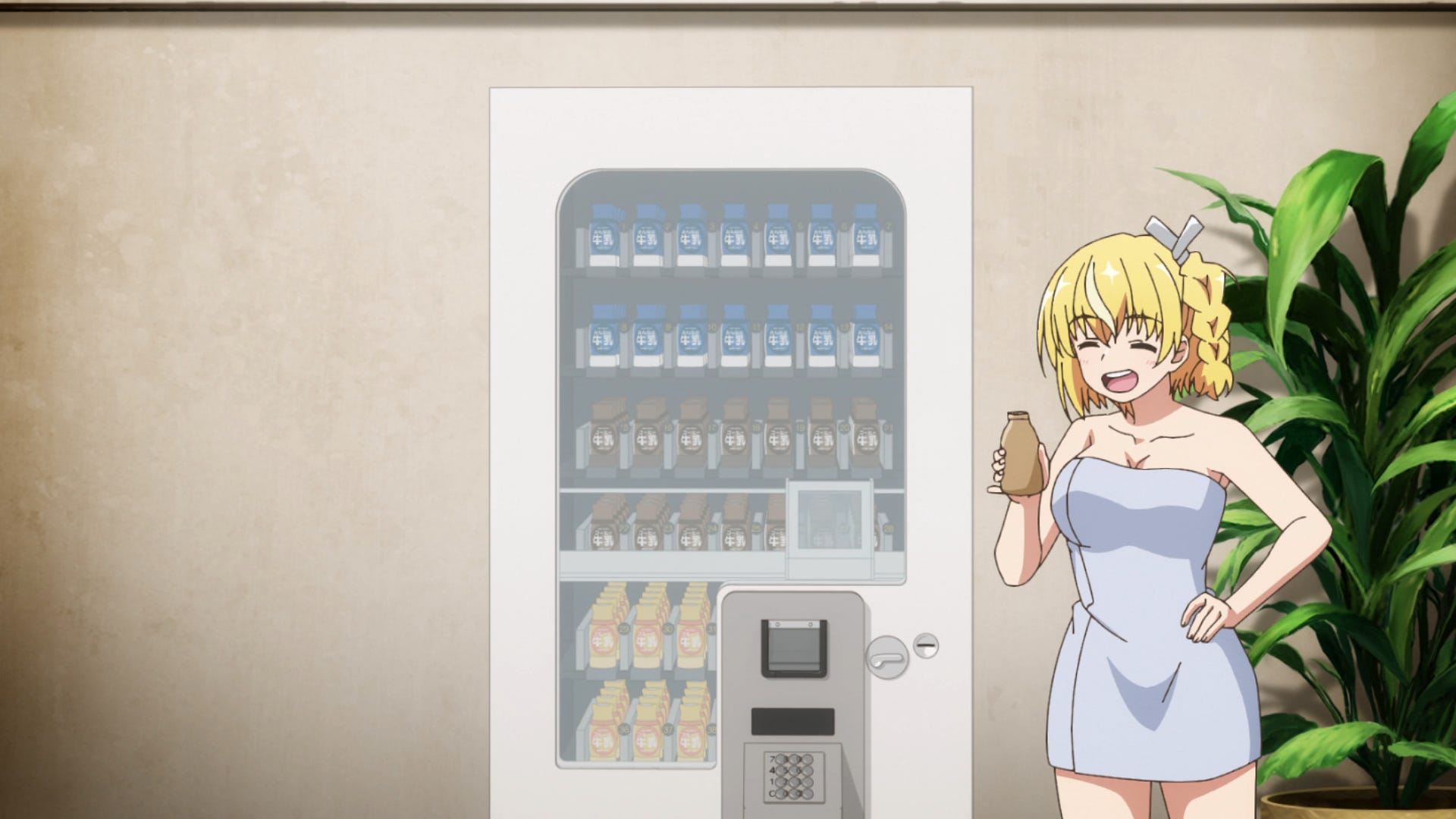
The really memorable scenes are things like like Boxxo introducing condoms to an STD-ridden dungeon town, or fighting off an invading chain restaurant by inspiring the local restaurants with his own product. The core appeal of this series is seeing what kind of humble, mundane solution Boxxo will pull out next.
But this is RPG isekai, and there are going to be dungeons and monsters and stuff every few episodes. I gotta clarify; it’s not that I dislike all that, it’s just that once Vending Machine gets to business down in the dungeon with its party of adventurers, it’s no longer all that different from other series about the same stuff.
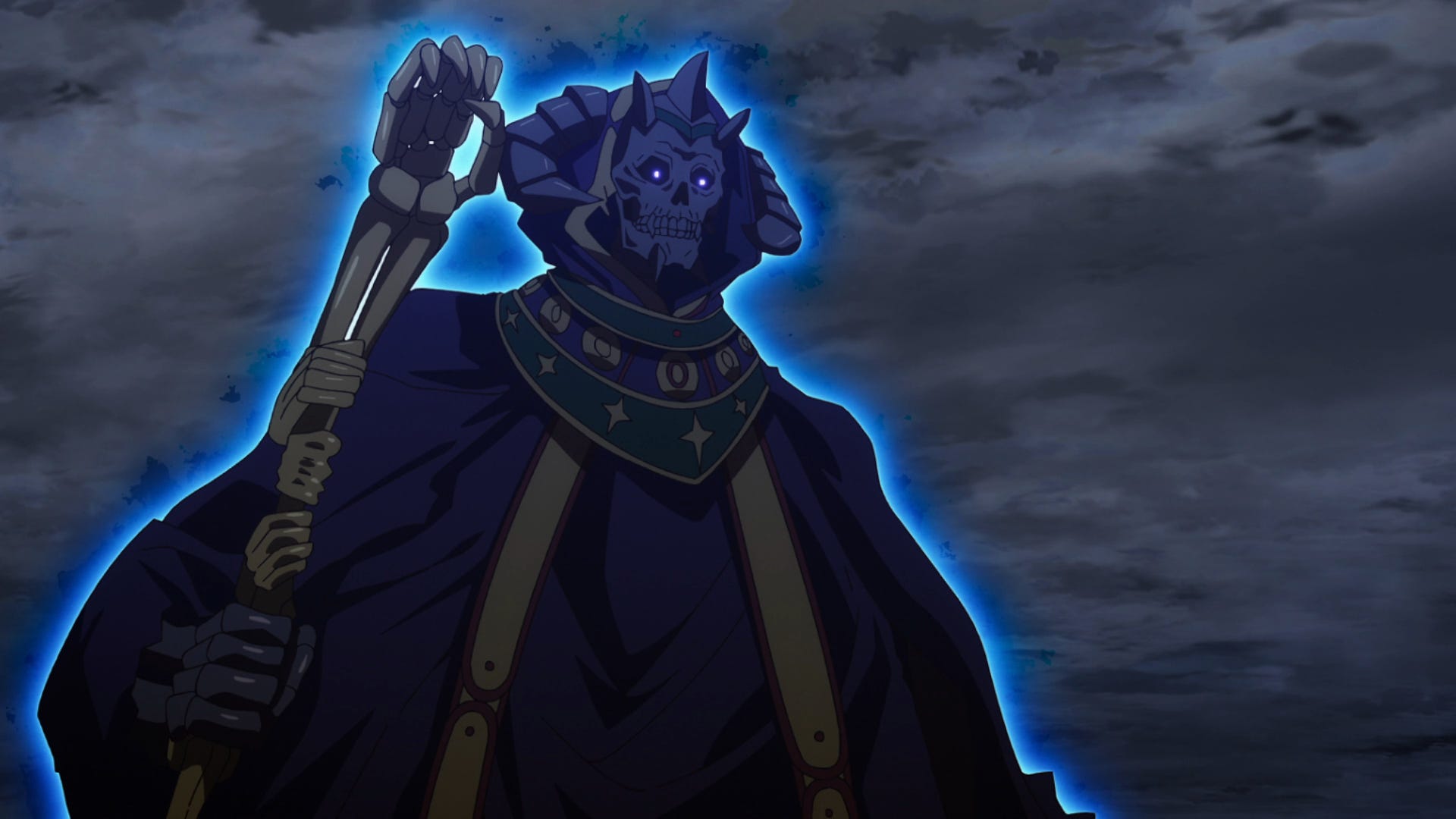
Super Duper Guy, Lord Of Freakin’ Whatever is like “wrauuuugh, my power is ultimate”, the characters dispense with him easily, you get it. At least in this case, the way Boxxo dispenses with the RPG boss is more interesting.
Boxxo has an RPG menu interface inside his head like a lot of isekai heroes, but the funny part is that when presented with omniscient powers like telepathy and stuff, he just picks “more vending machine” every time. The old “Diet Coke and Mentos” trick gets weaponized, as does the gas station air hose. I didn’t know there was a vending machine that sold dry ice— that sounds kind of dangerous?— but Boxxo transforms into things like that as needed, drawing from his encyclopedic knowledge of Japanese vending machines.
Hello there! Too bad! Hello there! Too bad!
I want to make sure I mention that I love this show’s joyous disco-pop theme song by Bradio.
Putting aside my minor complaint— that this genre work actually acts out its genre every once in a while— Vending Machine was nevertheless appointment viewing for me every week in a pretty dead TV anime season. I can’t wait for the next season. Seriously!
The heroic fantasy is all Dragon Quest III and the otome stuff is all Angelique.
This blog certainly indicates that I love video games, yet I find something repulsive about fiction about wanting to live in one. I think I want the gamers who write these things to be able to imagine better than that. (I more directly vibe with the slow life fantasies like “I killed slimes for 300 years,” though.) ↩
